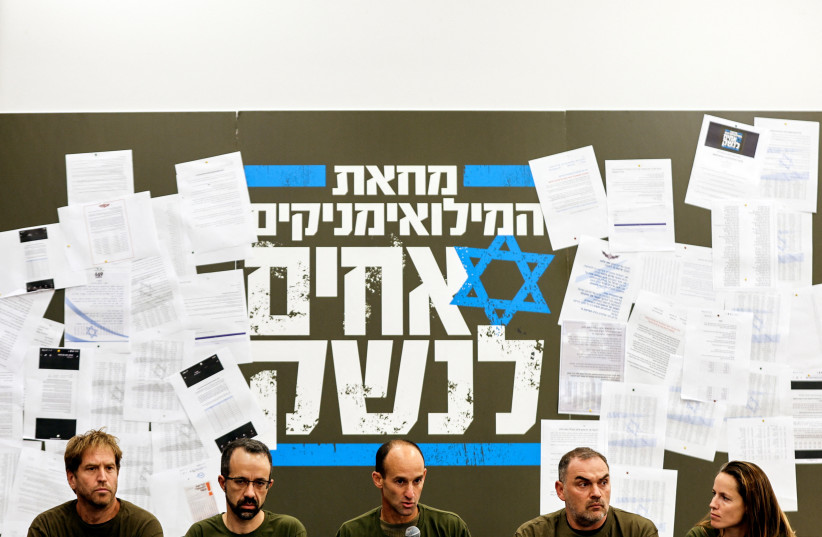As demonstrators and the state geared up for a week of mass protests against the judicial reform that will include rallies at train stations, a growing trend of military medical reservists refusing to continue their service threatened on Sunday to become a new front in the war on reform.
Protest groups announced on Sunday that mass protests on Tuesday's "National Day of Resistance" would feature demonstrations on the platforms of Israel Railways platforms in the afternoon. Preceding major disruptions targeted Ben-Gurion airport.
In the morning convoys and "disruptions" are expected throughout the state. Several marches will be held to the Histadrut building in Tel Aviv. Protest groups have been calling on the national union organization to once again join the demonstrations with general strikes.
An anti-reform group calling itself the Military Medicine Forum, claiming to represent reservist doctors, paramedics and mental health specialists, said that it was gathering letters announcing terminations of volunteer service to submit to IDF Medical Corps head Brigadier General Prof. Elon Glassber. The Forum claimed that they had already collected hundreds of notices.
"In a situation where the Israeli Knesset cancels the reasonableness standard and limits the power of the judicial system, there will be no protection for the IDF soldiers, including for reserve soldiers, at the court in The Hague," said the Forum, referring to the concept of complementarity, that local courts have priority over international legal forums if they are fair and competent. "We will not serve a dictatorship."

The forum said that their collection would join the growing list of reservists canceling their volunteer service or refusing orders.
Three examples of reservists sent cancellation letters surfaced in recent days. On Friday, one immigrant from Argentina said he made aliyah and served in the military out of Zionist motivations, but was no longer willing to volunteer.
"With great pain, I want to inform you that I will cease my volunteer reservist service in light of the coup d'etat taking place in the country," read the letter. "As someone who lived in his youth in a totalitarian state with a dictatorial regime, I am not ready to volunteer for an army of a state that is march toward an undemocratic government."
Brothers in Arms
On Sunday, the Brothers in Arms reservists protest group said that they faced a decisive week that could irreparably damage the IDF's status as a people's army. They urged Defense Minister Yoav Gallant, who was almost fired in March for his public opposition to the reform process, to take a stand against the new legislative push.
"At the beginning of a week, we all understand that there is no second chance for Israeli democracy," said the reservists' protest group. "Passing the law to cancel the reasonableness standard is the gateway to a dictatorship after which Israel is no longer democratic."
Brothers in Arms called on the rest of the public to take part in the week's protests to force the government back to the negotiation table.
Protest groups claimed that a total of 385,000, had demonstrated across Israel on Saturday night, half of them at Tel Aviv's Kaplan Street, which has been a focal point of unrest.
